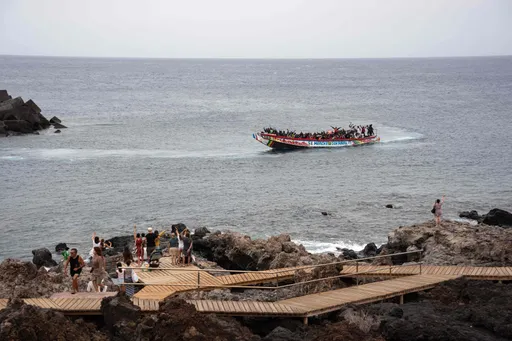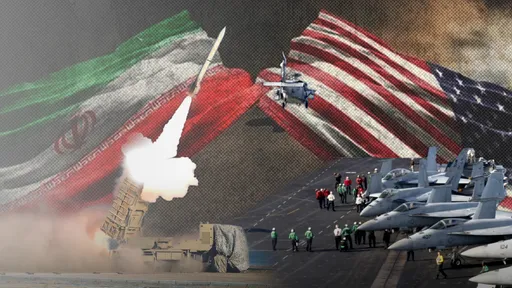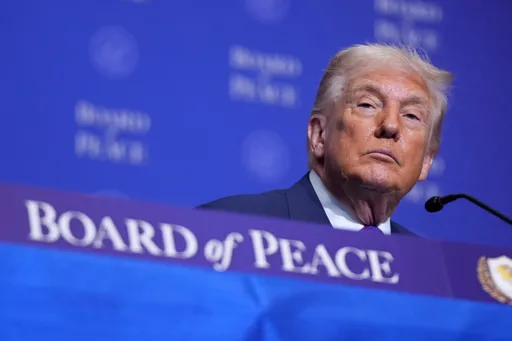In an exclusive interview with CNN on January 25, Sergey Ryabkov, Russia's deputy foreign minister, dismissed the relationship between his country and Iran as an alliance.
Referring to the term alliance, Ryabkov told the American channel “I wouldn't use this type of words to describe where we are with Iran.”
The Russian official affirmed that Moscow and Tehran are not on the same page regarding everything in Syria, and his country does not "underestimate the importance of measures that would ensure very strong security of the state of Israel," stressing that this is “one of the top priorities of Russia."
Ryabakov’s remarks coincide with three noticeable developments in Syria.
First, the renewal of clashes between pro-Russia and pro-Iran Syrian forces and militias in the Al Ghab plain. Second, the escalation of the conflict between Israel and Iran, in which Israel responded to a medium-range Iranian missile fired from a place near Damascus towards the occupied Golan by bombing Iranian targets inside Syria as well as Syrian air defenses. Third, the increasing talk about the safe zone area in Northern Syria between Turkey, America and Russia which apparently marginalises Iran from Tehran’s perspective.
The developments highlight the widening gap between Russia and Iran and the increasingly conflicted interests of both countries inside Syria. Indeed, Moscow never considered Tehran an 'ally' as relations between them have always complicated. Depending on what point in history you choose to look at, the relationship has ranged from enmity to competition and from exploitation to friendship. During all the ups and downs, however, the only thing that remains constant is a lack of trust between the two nations.
Although Iran and Russia intervened in Syria to save Assad, they don’t have the same agenda for Syria.
The two countries are competing in Syria over leadership, influence over the Assad regime, economic interests, and other issues. The Russians, in particular, seem to be more open to make compromises that benefit their national interests at the expense of Iran. The fact that Moscow is not blocking Israel’s military attacks against Iran and its proxies in Syria is quite telling.
When the Russian foreign minister phoned his Iranian counterpart to ask him to come up with an official statement to support the Russian-Turkish understating in Aleppo at the end of 2016, Zarif replied that Iran won't support an agreement it is not party to.
At the time, Iranians with their Islamic Revolutionary Guard Corps fighters, regional proxies, and local militias were the strongest foreign country on the ground in Syria, and they tried to sabotage the deal through Hezbollah and other militias before Moscow and Ankara agreed to add Tehran to a trilateral mechanism later.
Iran still maintains a direct presence on the ground and exercises broad influence over events in Syria. Nevertheless, there is no doubt that Tehran’s current status in Syria is degraded mainly for three reasons.
First, Russia has recently progressed in its efforts to increase its influence within the Assad regime’s institutions. Second, the Israelis are systematically targeting Iran and its proxies inside the country. Third, Turkey is building up its direct military presence in northern Syria and is increasing its role and influence there.
These developments make Iran nervous and doubtful of its relationship with Russia. Some might argue that Moscow is not interested or does not have the ability to kick Iran out of Syria, yet, it certainly has an interest to decrease Iran’s influence and to utilize that to its interest.
This can be seen through three main issues: the influence inside Assad’s regime’s military and security branches, the race over economic opportunities and interests, and disagreement over the Kurdish issue.
In January 2017, Russia distributed a draft copy of a Syrian constitution to the Syrian delegation attending the Astana meeting. The document reflected how Russia envisions the future of Syria and included two points that Tehran would never agree on: the right to self-determination, and the possibility of changing the borders of the country through a public referendum.
During the same year, Syria and Iran signed several agreements related to reconstruction, oil fields, mobile networks, agriculture, mining, and phosphate. One agreement in particular meant to give Iran around 5 thousand acres to build a seaport for oil exports, was reportedly blocked by Russia. It is unknown whether Russia did this out of private security concerns or to prevent Iran from extending its influence to the Syrian coast or as a result of an Israeli request, but such a decision highlights another dimension of competition between Moscow and Tehran in Syria.
When it comes to influence over Assad’s regime, both Iran and Russia are running contradictory strategies which create tension on the ground between different military/security branches of the Syrian regime.
Last month, the national defence militia and the fourth division in the Syrian regime forces led by Maher al Assad clashed again with the fifth corps and the “Nemer forces” lead by Suhail al-Hassan in the Al Ghab plain in Hama. The first is supported by Iran while the second is supported by Russia. Such clashes can be seen as an increasing effort to hinder Iran’s position and limit its influence in Syria.
As the war winds down in Syria, both Tehran and Moscow are re-positioning themselves to pick up the political and economic pieces. The divergence between the two countries, however, is expected to intensify fueling even more distrust between them.
In this sense, whether Rybakov’s statements on Iran are seen as an expression of a typical Russian opportunistic behaviour to extract concessions from the US, Israel and Gulf countries, or as reflection of an original effort to protect its influence and interests in the new Syria, Tehran is certainly not comfortable with Russian actions.
Although some argue that the two countries understand their differences and won't let that come in the way of mutually beneficial policies, and this analysis might prove right, the perception that such statuesque might can continue indefinitely is completely wrong.
The current equation between Moscow and Tehran in Syria is unsustainable and Iran does not seem to be in a good position to respond to Russia, and whether some countries will invest in this divergence or whether Moscow and Tehran will be able to carry on in Syria without a direct clash is still up for debate.























